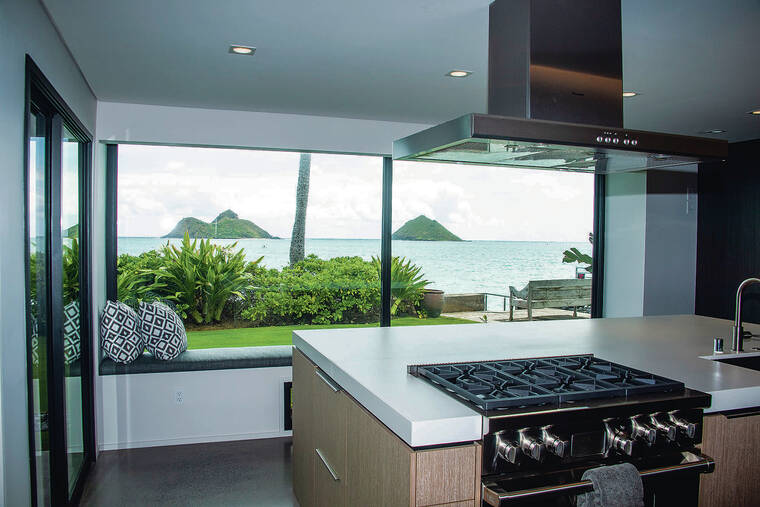Hawaii’s vacation rentals total nearly 6% of housing supply
Despite vacation rental crackdowns and looming legislative reforms, vacation rental supply statewide still accounts for a significant portion of Hawaii’s housing stock.
That’s why the conversion of vacation rentals into longer-term housing is seen by some as a solution that could satisfy critical housing demand in Hawaii. But so far, regulatory policies have not led to an aggregate shift toward the long-term market, as other short-term rental listings have entered the market in response, said Justin Tyndall, an author of the Hawai‘i Housing Factbook 2024, which was released in May by the University of Hawaii Economic Research Organization, where he works as an assistant professor of economics.
ADVERTISING
The fact book cites statistics from the state Department of Business, Economic Development and Tourism, which estimates that there are 32,000 STRs in the state, accounting for nearly 6% of the state’s entire housing inventory. While STRs aren’t necessarily in use daily, DBEDT data indicates that active listings increased 9% from 2022 to 2023.
Could vacation rentals play a larger role in solving the housing crisis in Hawaii, where UHERO noted that the ability to provide new housing remains extremely limited? The Maui County Planning Commission meets today and will be the first group to evaluate a proposal from Maui Mayor Richard Bissen to phase out transient vacation rentals on the so-called Minatoya list, a category of short-term rentals that were exempted earlier from going through the typical permitting process.
Bissen’s action seeks to phase out some 2,200 vacation rentals in West Maui apartment districts by July 1, 2025, and eventually all 7,000 units in apartment districts across Maui.
It came even before Gov. Josh Green’s signing of Senate Bill 2919, which became Act 017 on May 3, and clears up issues of state preemption of vacation rental management by allowing counties to craft their own policies, which “regulate the time, place, manner, and duration in which uses of land and structures may take place.”
Bissen said in a statement issued May 2, “We may rebuild our beloved Lahaina, but if we don’t return Lahaina to the people who represent that unique community — if we don’t recognize the faces of our friends and family as we repopulate Lahaina, we will have lost this fight for our people, and for my administration and I — even one more family lost is one too many.”
Fallout from the Maui fires upended Maui’s housing market and underscores the affordability crisis statewide. It also has drawn attention to the role that vacation rentals could play in augmenting housing stock, as well as the challenges.
Though Hawaii expanded its housing stock by 25,000 units, or 1.8%, from 2018 to 2022, UHERO noted that the growth was only on Oahu, which had a net increase of 23,000, and Hawaii County, which added 2,600 units. The report said Kauai and Maui saw a net loss of units, likely because “the rate of new construction has been unable to keep up with losses to the vacation rental market.”
Paul Brewbaker, principal of TZ Economics, said in an email about Bissen’s proposal, “The loss of up to 20% of all jobs in Maui County is what is at risk, if you include full multiplier impacts.”
Brewbaker added that the loss with multipliers is broadly “$1.5 to $2.5 billion in Maui County output — within a $12 billion Maui economy.”
He said such losses would leave “thousands whose employment and incomes are extinguished” and “can no longer pay the rent.”
So far, Maui is the only county to introduce a bill to amortize vacation rentals since the state gave the counties greater power to chart their own course. Kauai is staying the course. Hawaii island is working on vacation rental reforms but does not plan to amortize them.





